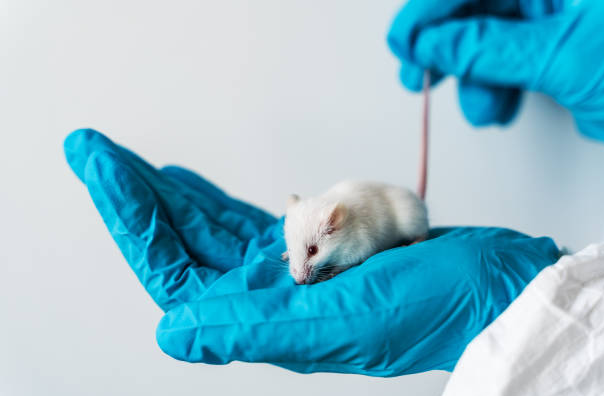Animal Testing: Is It Ethical?
Researcher in lab coat and protective makes injection into mouse tail. Testing a new vaccine or drug against coronavirus
Have you ever wondered what the phrase “animal testing” really means? When you hear this phrase as a child, you imagine that animal testing is the process of applying makeup onto an animal. After decades of animals being used for experiments, the truth has been exposed to the public.
Although the Animal Rights Movement protesters can refute, animal testing contributes to the advancement of medicine. Stanford Medicine states, “Not only do we humans benefit from this research and testing, but hundreds of drugs and treatments developed for human use are now routinely used in veterinary clinics.”
Not only does this kind of research benefit humans, but it also benefits animals when it comes to an animal’s medicine and health care.
Despite that fact, animals and humans are very different despite similar DNA. Britannica’s ProCon reports, “The anatomic, metabolic, and cellular differences between animals and people make animals poor models for human beings.” This can prove to be significant when taking experiments into consideration. Because humans and animals are not very compatible, it’s advised that people don’t use their time to experiment on animals for the sake of humans.
Whether you believe it is inhumane to use animals for experiments or think it is beneficial to the evolution of medicine, it’s people’s choice. Only the future will tell what that choice might be.
Your donation will support the student journalists of Canyon High School. Your contribution will allow us to pay for our print issue magazine, website, and equipment costs.

Alexis Garcia is a new staff writer for CHS Pony Express. By being in journalism, she hopes to grow her writing skills and get a different perspective...






